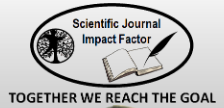Ambiguous Selves: Examining Psychological Repercussions of Human Cloning in Mildred Ames's Anna to the Infinite Power
DOI:
https://doi.org/10.59136/lv.2024.2.2.4Keywords:
Human cloning, Identity formation, Family Dynamics, BioethicsAbstract
Artificially created human beings are speculated to grapple with psychological struggles, including identity crisis, existential angst, societal discrimination, and complicated family dynamics resulting from their unorthodox genealogy, which is portrayed in posthuman narratives that feature genetically diversified society that integrates artificially created human beings with sexually reproduced individuals. Apart from cloning humans for procreation, the concept of cloning a historical figure who could make tremendous contributions to the world has intrigued the proponents of cloning. In a hypothetical space where cloning achieves rampant societal acceptance, addressing the moral, ethical, and legal rights of the clones becomes paramount to preserving the sanctity of human life. This article conducts a bioethical analysis of the possible psychological repercussions of human cloning that culminate into complexities in identity formation, individuation and family dynamics among human clones in Mildred Ames's Anna to the Infinite Power.
Downloads
Downloads
Published
Issue
Section
License
Copyright (c) 2024 Grace George, [email protected]

This work is licensed under a Creative Commons Attribution-NonCommercial 4.0 International License.




